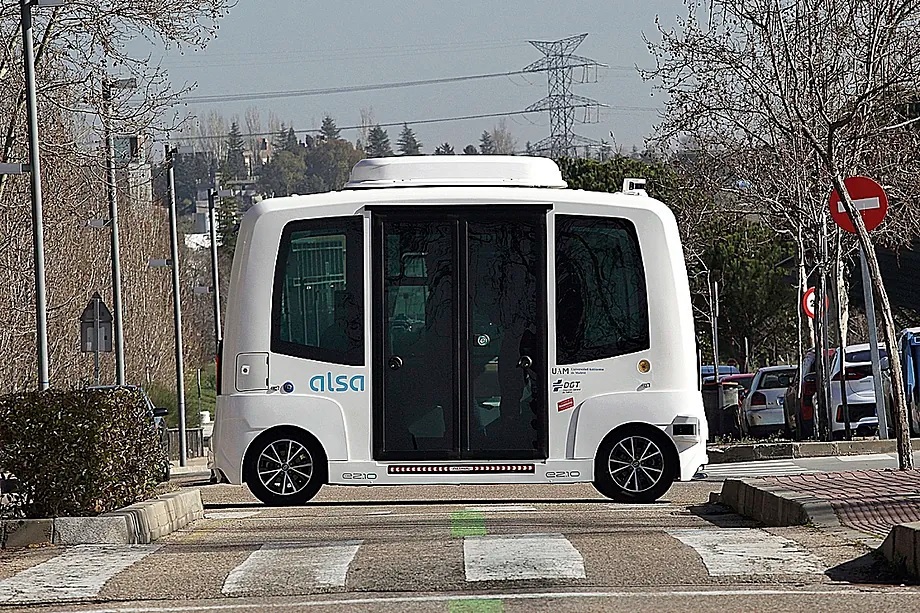Madrid is gearing up for a pioneering debut in urban transportation. In celebration of the European Mobility Week, which takes place between September 16 and 22, the Municipal Transport Company (EMT) will introduce the first autonomous electric driverless bus that will navigate the streets of the capital. The chosen scenario will be Casa de Campo, once again serving as a testing ground for initiatives related to sustainable mobility.
The vehicle, small in size and fully automated, will make a round trip between Avenida de Portugal and Glorieta de los Neveros in Casa de Campo (across from the Lake), following Avenida de la Puerta del Ángel. During its route, it will have six intermediate stops, one of them between the Lago parking lot and the pond's restaurants. The service will operate experimentally for several weeks as part of the European Mobility Week activities. It will run every half hour and initially will be free during Mobility Week.
The bus is 100% electric, manufactured entirely in Spain, and has a capacity for 12 passengers. It is equipped with advanced cameras and sensors, both externally and internally, that record and process real-time traffic conditions, the road, passengers, and other users to optimize safety. In case of malfunctions, there is a supervisor. The maximum speed for this pilot test is 15 km/h along the 1.8-kilometer route through Casa de Campo. The service will be available from Monday to Friday from 12:00 to 17:00 hours.
This type of bus was previously tested in Madrid by the company ALSA at the Cantoblanco campus of the Autonomous University. The system relies on a prior mapping of the route and requires the road to be free of obstacles: there should be no improperly parked cars, double-parked elements, or incidents that interfere with the automatic reading of sensors and cameras.
The initiative aims to showcase technological advancements in urban transportation and demonstrate a commitment to sustainability. The EMT emphasizes that these types of vehicles reduce carbon footprint and can become an efficient alternative in certain areas. However, the debut is not without controversy.
Various environmental groups and neighborhood associations have criticized the choice of Casa de Campo as a testing ground. They argue that it is a natural environment already under high traffic pressure, especially on weekends, and that the introduction of a new transportation service, albeit experimental, could worsen congestion and disrupt the tranquility of this major green lung in Madrid, as denounced by the Save Casa de Campo platform. "It is a contradiction to speak of sustainable mobility and bring more vehicles to a protected space that should prioritize pedestrians, bicycles, and environmental conservation," they point out from the same platform.
Other organizations warn that these types of trials are concentrated in Casa de Campo because they "have no place in other neighborhoods of the city," turning the park into an urban laboratory without considering its ecological value. The City Council argues that these initiatives aim to introduce future transportation alternatives to the public, although their real implementation in the city seems distant for now.
Nevertheless, the launch of the autonomous bus stands out as one of the most striking events of the European Mobility Week in Madrid, which this year also includes traffic restrictions in several central streets, awareness activities, and the celebration of Car-Free Day on September 22.
